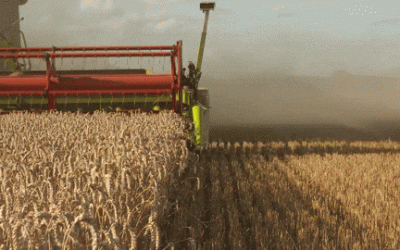Where’s the beef?
Well, it’s dwindling in the U.S.
Steaks are low: The U.S. beef cow inventory is the lowest it’s been in more than 60 years, at 28.2M. Cow-calf operators have been facing drought, high feed/input prices, and high cull cow prices.
Cash or calf: Even though pasture conditions and feed costs are improving with better weather, the market is still favoring cattlemen and women sending calves and heifers to feedlots, rather than retaining them for their herds. Currently, there’s a $300 upside to selling a calf instead of raising it.
Bring back cattle country: Experts say it could take years to rebuild the U.S. cattle herd. CoBank says it could be 2026 or 2027 before heifer retention rates regain hoofing. Some analysts say it all depends on whether we’re going through the big D—and we don’t mean Dallas. Drought. If it gets worse, herd liquidation is likely. But here’s hoping for moisture improvements, like there have been in Nebraska, Kansas, Oklahoma, and Texas (there’s a lot of cattle in these states). There are still only two ways herd expansion will happen: slow or slower.
Age before bovine: As farmers and ranchers age, the financial impacts of the industry may have caused a few more hairs to turn gray. The stress of the market over the past four years, especially for part-time cattlemen and women, may spur a few more livestock trailers at the sale barn.
Pricey for packers: This herd contraction is rough for meatpackers, who lost nearly $100 per head throughout 2023 and 2024. This ultimately impacts the price of meat at the grocery store. And with food prices being a top four criteria on buying protein, beef may be missing from both pastures and dinner plates.
Wheat Hybrid Race Heating Up
Growing more with less is the name of the game for crop production. And the game is heating up as...
Brazil and China Sign Nearly 40 New Deals
Brazil and China are taking their relationship to the next level. Last week, the two countries...
Tractor Tax Draws Farmer Ire
British farmers are in protest mode over a government decision to cut out a 1990s era tax break...




